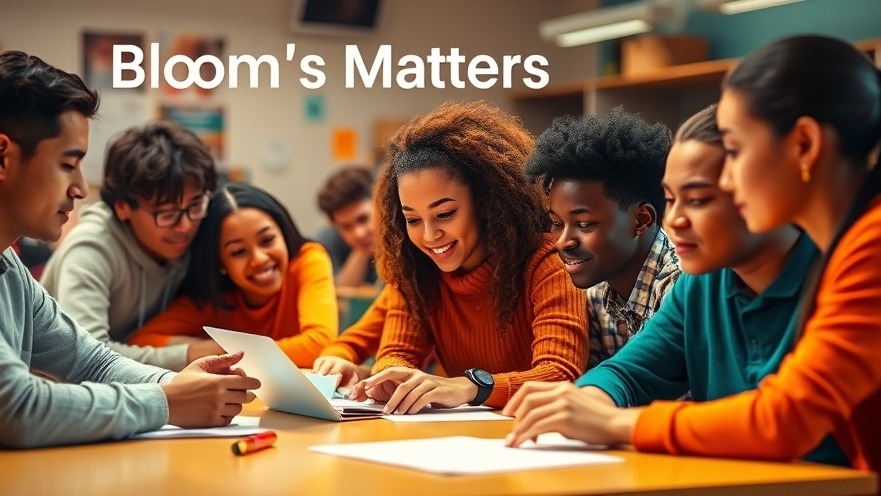
Preparing for an AI-Infused Future in Education
The advent of artificial intelligence is recalibrating the educational landscape. As AI continues to evolve, it is crucial for educators to foster a generation of students who are not only well-versed in using these technologies but can critically assess and ethically engage with them. This emerging need for 'AI readiness' goes beyond traditional educational paradigms and invites teachers, school administrators, and parents to rethink how academic frameworks can be developed to accommodate this change.
What Does AI Readiness Mean for Students?
Sallie Holloway, Director of AI and Computer Science at Gwinnett County Public Schools, offers a compelling definition of AI readiness: it entails cultivating skill sets that empower students to become ethical users, developers, and decision-makers in the realm of AI. As AI permeates various industries, fostering these skills for all students—not just those in tech-centric fields—will prepare them better for higher education, future careers, and responsible citizenship.
Moreover, failure to equip students with knowledge in AI may result in them requiring retraining as they enter the workforce. The growing presence of generative AI in the workplace makes it evident that understanding how these technologies operate is just as vital as learning to use them.
Debunking Myths Surrounding AI in Education
One common misconception is that AI readiness simply involves teaching students how to use AI tools extensively. Holloway clarifies this by advocating for the demystification of AI itself: students should grasp the basics of AI’s functionality before applying its tools. Critical thinking about the agenda behind AI technologies, privacy considerations, and their overall implications is central to this approach. This cultivates an inquisitive mindset that empowers students to analyze tools rather than accept them unconditionally.
Framework Development: A Collaborative Effort
The development of a robust AI readiness framework is a collaborative endeavor that has involved input from educational professionals nationwide, including partnerships with renowned institutions like MIT and Stanford. In Gwinnett, contributions came not just from educators but from parents and industry professionals, emphasizing a holistic approach to ensuring that curricula evolve with technology.
The framework developed includes technical components like programming and data science alongside 'human-only' skills such as ethics, creative problem-solving, and user experience. This ensures students not only learn the technical facets of AI but also the implications of its usage in the real world, thereby achieving a balance in their education.
The Importance of Community Support and Innovation
Support from community stakeholders is crucial when implementing new initiatives. Holloway emphasizes that leadership support, resource allocation, and a culture open to innovation significantly impact the success of developing an AI-ready educational system. School districts that want to create similar frameworks should invest in collaborations and create open lines of communication between all stakeholders involved.
Establishing a clear understanding of what the community requires from an educational standpoint is paramount. This consensus will not only drive the initiative but will also foster a sense of ownership among educators and the surrounding community.
Preparing Students for a Challenging but Rewarding Future
In reflecting on the challenges of integrating AI into education, both resources and training for educators need to be prioritized to facilitate this transition. As generative AI continues to expand its reach, the call for educational systems to adapt rapidly is clear. Innovating curricula with a focus on human-centric AI readiness can ensure students are equipped to lead and thrive in future landscapes.
Ultimately, prioritizing AI readiness is about creating a generation of students who are not just consumers of technology but also leaders and innovators who can harness AI responsibly and ethically. In preparing for an AI-infused future, educators will not merely teach technical skills; they will inspire a holistic understanding of technology's role in society.
For educators, parents, and administrators, the call to action is clear: invest in AI readiness, foster collaboration, and prepare students not only to engage with AI but to question it critically, ensuring a brighter, informed future for all.
 Add Row
Add Row  Add
Add 




 Add Row
Add Row  Add
Add 

Write A Comment